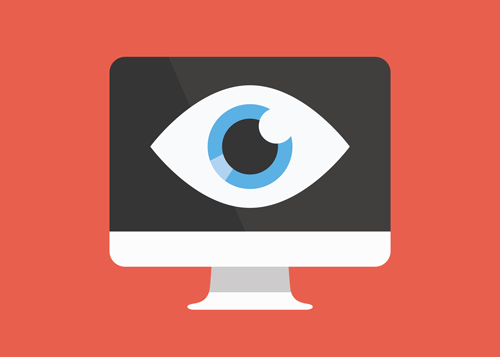
By Kerry Gorgone, {grow} Contributing Columnist
Ever taken a BuzzFeed quiz? You probably never thought you were disclosing anything too personal. After all, what insight could be gleaned by a marketer’s knowing which Harry Potter, Game of Thrones, or Downton Abbey character you are? But other quizzes—such as How Lazy Are You and What Grade Are You Getting in Life—would likely reveal much more personal data. Dan Barker recently published a highly detailed article about which data points BuzzFeed has collected about his use of the site.
As BuzzFeed no doubt knows, quite a bit of nuanced personal data is revealed in the course of taking one of these quizzes, and depending on the privacy policy of the specific site, they can share it with business partners and use it to target ads.
Check out BuzzFeed’s privacy policy, for instance. Even if you don’t create a BuzzFeed account to login to the site, they collect aggregate data as well as your location, IP address, information from cookies and web beacons about your browsing behavior, and much more. If you don’t like it, don’t use the site, or access it only from a public computer. That’s about the size of it.
If you do create a BuzzFeed account and use it to access the site, you relinquish still more privacy to BuzzFeed and its advertisers. Check out the “Account Information section of the site’s privacy policy (emphasis mine):
When you create an Account, you will provide information, such as your username, password and email address. You acknowledge that this information may be personal to you, and by creating an Account on the Services and providing Personal Information to us, you allow others, including us, to identify you. If you access the Services through Facebook credentials, we may automatically collect certain information, such as your name, picture, and email address. We will use all information available through Facebook in accordance with Facebook’s policies and your preferences selected through Facebook. We may use your contact information to send you information about our Services, when we feel such information is important. You may unsubscribe from these messages through your Account settings, although we reserve the right to contact you even if you unsubscribe when we believe it is necessary, such as for Account recovery purposes.
For those who click past those pop-up windows requesting your consent, this is fairly invasive. Combined with your browsing information (both on the site and elsewhere online), you’re providing a data-rich window into your likes, dislikes, attitudes and predilections (even the most personal, since they can access data for things you look at privately, but don’t share.)
BuzzFeed has won
In short, BuzzFeed has won the market research game: demographic information, complex psychographic data, location, and browsing history, all at its fingertips. And users are giving it up happily, just to discover if the Sorting Hat will put them into Gryffindor or Slytherin.
BuzzFeed does make an effort to tell users where they should look for information on disabling cookies, turning off location services on their mobile device, etc., but how many people will actually go to the effort, and of those, how many prefer to leave those services enabled for the sake of convenience?
And even if the masses were to block, disable, or delete cookies, new alternatives for tracking online behavior are cropping up.
Clearly, BuzzFeed and similar sites are swimming in valuable data. There is some question in my mind about the quality of some of this data, however. Many people lie to get the result they want. Some will take and retake a quiz, changing answers to see if they can rig their result.
This should affect data quality, but BuzzFeed tracks your individual answers, as well. In fact, they might gain even more insight into the deepest recesses of your mind if you take a quiz multiple times, like being privy to your burning need to be perceived as Harry Potter instead of Luna Lovegood or Arthur Weasley.
Is the Buzzfeed practice legal?
But how can this be legal? There are privacy advocates who think it shouldn’t be, but the law is painfully slow to change, and technology companies incredibly adept at writing sweeping privacy policies and terms of use that sidestep existing laws and obtain users’ consent.
Even in instances where a site or app does invade users’ privacy, it might be years before the questionable practices are discovered. Even then, there may not be much in the way of adverse consequences, as we saw in the case of the “Brightest Flashlight” Android app that covertly collected location data about millions of users. The developers were caught, sternly reprimanded, and fined…nothing. The FTC simply told the “Brightest Flashlight” developers to delete the data they’d collected.
Horrified? Ready to delete your BuzzFeed account? Won’t help much. “All content submitted by you to the Services may be retained by us indefinitely, even after you terminate your account. We may continue to disclose such content to third parties, as described in this Privacy Policy.” (Excerpt from BuzzFeed’s privacy policy. Again, emphasis mine.)
Maybe the answer is to post a quiz of our own: How Much Do You Care About Online Privacy? No multiple choice questions: just share your thoughts in the comments.